Konami is one of the most recognizable brands in gaming, having cut its teeth in the arcades in the late 70s before bombarding Nintendo Entertainment System owners with one unforgettable series after the next. Its prominence in the console market blossomed through the following console generations, but around the time PlayStation 3 and Xbox 360 hit the market, the number of new Konami games began to slide.
Fast forward to the present, and we're witnessing a major shift in the way Konami conducts its game development business. Hideo Kojima, a developer who has arguably done more for Konami than anyone else, is purportedly months away from parting ways with his employer of nearly 30 years. This comes amidst a shakeup involving the combining and rebranding of studios, as well as new executive appointments. Kojima's potential separation from Konami signals an end to Kojima's brand of Metal Gear as we know it (though Konami says it's committed to new Metal Gear games), and as we learned earlier this week, it's already impacted one game that many people were anxiously awaiting: Silent Hills. Kojima's reboot of the Silent Hill series with film director Guillermo del Toro and actor Norman Reedus has been officially cancelled, all but confirming that Kojima and Konami will be parting ways in the not too distant future.
While we wait to see how these events unfold over the coming months, now's a great time to look back and appreciate the games and series that made so many people dedicated Konami fans in the first place. Though some appear too far gone to be resurrected, others still have a pulse and could be revived down the road.
Metal Gear: 1987-2015
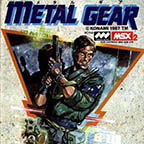
The arrival of Metal Gear marked the beginning of a new era for action games, introducing the notion that you may have just as much fun avoiding combat as you do diving headlong into it. Hideo Kojima's experiment was an unlikely success, sparking a torrent of Metal Gear games and merchandise in the decades that followed. Kojima's perspective on world events and his love for film drove the series forward, and by the time Metal Gear Solid arrived in 1998, his status as an auteur was set in stone. For the success of the series and for Kojima's influence on the industry at large, Metal Gear is the most important series Konami has ever produced.

The most recently released Metal Gear game is Metal Gear Solid V: Ground Zeroes, the prologue to upcoming Metal Gear Solid V: The Phantom Pain. The small but exciting Ground Zeroes took the series in a new direction, introducing sandbox gameplay while giving us our first look at Kojima Productions' and Konami's powerful Fox Engine. Some people viewed it as an experience that was all too brief, despite its budget price tag, but people who dug into it wholeheartedly found that there's more to the game than simply beating a mission; there were ample opportunities to get creative and alter your tactics as you go about rescuing and assassinating targets. It was a great experience, but it was only the tip of the iceberg that is Metal Gear Solid V.
The story that began in Ground Zeroes will come to its conclusion in The Phantom Pain this September. More importantly, The Phantom Pain fills in the last major gap in the Metal Gear series' timeline, in the years between Ground Zeroes and the original Metal Gear; otherwise known as the years between Naked Snake, AKA, Big Boss, and his clone, Solid Snake.
By all accounts, this will likely be the last Metal Gear game lead by Hideo Kojima. True, Konami has stated that it's looking for new talent to lead the next Metal Gear game. However, Konami is a publicly traded company, and if it were to announce that the series is coming to a close, fans and investors may get cold feet and look elsewhere. By making a soft announcement for a new game, both parties are theoretically satisfied--for now.
Silent Hill: 1998-2014
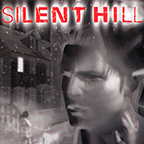
The original Silent Hill arrived in a post-Resident Evil world, but Konami's Team Silent didn't try to emulate RE's spooky mansion or its use of zombies. Instead, it delivered a haunting tale of a father in a strange town searching for his lost, adopted daughter. Though it was used in part to make up for the PlayStation's limited RAM, the fog in Silent Hill proved to be an effective means of orchestrating horror, and has gone on to become an iconic element of the series.

Though Silent Hill fans enjoyed a healthy stream of games in the years following its debut, Silent Hill has been struggling for a few years. The last titled Silent Hill game was Silent Hill: Book of Memories, which was released for PlayStation Vita in 2012. Like other Silent Hill games after Silent Hill 4: The Room, Book of Memories was developed by an external studio. In this case, WayForward Technologies (Shantae, Contra 4, DuckTales: Remastered) took the helm. An unlikely choice for Silent Hill, WayForward Technologies took the series in a new direction by making Book of Memories an isometric RPG. Suffice it to say, the game didn't fare well with critics; it earned a 6 from reviewer Britton Peele on GameSpot, and has a Metacritic score of 58.

By the time Book of Memories was released, it seemed like the series was on its last legs. However, behind the scenes, a new face began work on a new and exciting take on Silent Hill: Metal Gear's own, Hideo Kojima. After hinting for years that he wished to work on a new game in the series, his chance had finally arrived, and in true Kojima fashion, the new game, Silent Hills, was announced via a cryptic reveal.

At Sony's 2014 Gamescom press conference, the unheard of 7780s Studio announced a new, free horror game, P.T. Available immediately, P.T. became an instant hit for it's mysterious plot and terrifying setting: a single, looping hallway that grows increasingly frightening with every subsequent trip. To everyone's surprise, a post credits sequence at the end of P.T. revealed Kojima's Silent Hill reboot, and his collaboration with director Guillermo del Toro and actor Norman Reedus.
Sadly, Kojima and Konami's reported split has led to Silent Hills being cancelled. Konami has stated that it isn't giving up on Silent Hill, but that Kojima's take on the series isn't moving forward as planned. P.T., which is both highly regarded and the only sample of what Kojima had in mind for Silent Hills, has since been removed from the PlayStation Network store. The future of Silent Hill, like Metal Gear, is up in the air.
Pro Evolution Soccer: 1995-2014
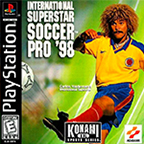
Nobody would blame you if you thought that Metal Gear was Konami's most profitable series, but Pro Evolution Soccer, otherwise known as Winning Eleven, is its real prize pig. For the past two years, it's been the single most successful franchise for Konami, outselling Metal Gear by a wide margin.

PES has been around for a long time, but there was a period when Konami had another soccer game up its sleeve: International Superstar Soccer. ISS arrived in 1995 on the Super Nintendo Entertainment System, but in 1997, while ISS was exclusive to Nintendo consoles, Konami created International Superstar Soccer Pro for PlayStation owners.
Fast forward to 2015 and PES is alive and mostly well, though sales are sliding year over year as FIFA continues to dominate the pitch. PES '15 is the first game in the series to ship as late as November, which is only really important to note when you consider that new FIFA games have consistently shipped in late September or the first week of October for the past 10 years. Konami typically announces a new PES game in the Spring, but this year, the only news regarding PES was a price drop for the current version. If a new PES isn't revealed at E3 or Gamescom, PES fans may find themselves with little choice but to convert to FIFA next fall.
Castlevania: 1986-2014

There was a period of time when Castlevania was one of Konami's most notable and popular series. Debuting in 1986 on Nintendo's Famicom Disk System (an add-on to the Japanese version of the NES--the Famicom), Konami has since released over 30 Castlevania games across a wide range of platforms. Castlevania's roots are in side-scrolling action games, and with the exception of the obtuse Castlevania II: Belmont's Revenge, many early games adhered to a strict level-based design.

With the arrival of Koji Igarashi's Castlevania: Symphony of the Night, the series took a turn in a new direction, replacing individual stages with a large castle that the player could explore as they saw fit--so long as they had the means to survive and progress past obstacles. This formula was used in six more games over the next decade, with a smattering of other Castlevania games filling in the gaps.
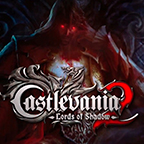
During this time, Konami released a handful of 3D Castlevania games: two on the Nintendo 64, and two on PlayStation 2 and Xbox. These games didn't enjoy the same success as their portable, Igarashi-made counterparts, but this changed when the spanish studio, Mercury Steam, worked with Konami Producer, David Cox, to create the Castlevania: Lords of Shadow series. The original Lords of Shadow would go on to become the best selling game in the series' history, but despite the success enjoyed by Cox and Mercury Steam, the future of the series looks uncertain. Cox has parted ways with Konami under uncertain terms, and while Mercury Steam is still an active studio, there's no telling who at Konami will lead the charge for a new Castlevania, nor where this hypothetical game will be made. With a four-year gap between Lords of Shadow and Lords of Shadow 2, it's too early to rule out a new Castlevania, but with Cox and Mercury Steam declaring that Lords of Shadow's story is complete, any new Castlevania will likely fall under a new subtitle.
Bemani: 1997-2014


People love both music and video games, and Konami was smart enough to capitalize on this by creating Beatmania in 1997, the first of dozens of music-based games under the Bemani moniker. Bemani games were the jumping off point for series like Guitar Hero, but where Activision dominated the console market in North America, Konami injected Bemani games in arcades all over the world. Despite the shrinking arcade market, Konami and the Bemani brand thrived thanks to the games' energetic nature, which made it as much of a spectacle for outsiders as it was a test of rhythm and endurance for the player.
Gamers outside of Japan were no strangers to Beatmania, but Dance Dance Revolution was the series that truly kicked off the Bemani craze on an international scale. Foregoing the faux DJ setup of keys and a turntable from Beatmania, DDR utilized a simple, quad-directional dance pad. Good players managed to beat difficult Japanese pop songs with great focus and determination; great players destroyed entire soundtracks, rarely looking at the screen as their impeccable muscle memory led them into choreographed routines filled with outlandish maneuvers. DDR was many things to many people: it was a game, an exercise program, and a medium for performance art.
DDR's success inspired numerous spin-offs from Konami and me-too games from other publishers, yet despite stiff competition, Bemani remains one of Konami's most profitable franchises. It's unlikely Konami will stop developing new Dance Dance Revolution in the foreseeable future.

Suikoden: 1995-2012

Suikoden was an unusual RPG when it arrived on the PlayStation in 1995 due to the large number of characters that you could recruit, known as the 108 stars. This system set Suikoden apart from other console RPGs of the day, many of which were derivative, riding on the success of series like Final Fantasy and Dragon Quest. Suikoden frontman Yoshitaka Murayama led the Suikoden charge for two more games, ultimately departing Konami towards the end of Suikoden III's development cycle.

By that time, Suikoden was extremely popular due to the success of the still-renowned Suikoden II, and Konami was happy to keep development of the series going full steam for another ten years. Unfortunately for fans, there's been no activity since 2012, when Konami released Genso Suikoden: Tsumugareshi Hyakunen no Toki (Suikoden: The Woven Web of A Century) exclusively in Japan for the PSP. The last Suikoden game that made it to Europe and North America was Suikoden: Tierkreis, and despite being received positively by critics, it failed to make an impact at retail.
At this point, being one of Konami's supplemental series, it's unlikely that we'll see a new, traditional Suikoden game anytime soon. A group of dedicated fans, collectively known as the Suikoden Revival Movement, have worked for years to bolster the series chances at a comeback. Unfortunately, after three years of activity, Konami seemingly isn't convinced, with no Suikoden-related hints or official announcements since the inception of SRM.
Contra: 1987-2011
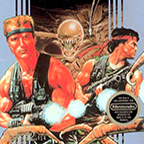
Like so many of Konami's treasured series, Contra's life began in the arcades in the late '80s and found worldwide success once it landed on the NES shortly after. It set the bar for side-scrolling shooters (it also included some vertical-scrolling levels) through challenging level design that emphasized platforming elements and fast-paced action, and the variety of weapons in the game gave players multiple ways to strategize for high-scores; support for two-player co-op added even more depth. Due to anti-violence media laws in Germany, Konami localized Contra for all PAL territories by reworking the game's human characters into robots, subsequently changing the game's title to "Probotector" to avoid confusion.

This dual-identity persisted up until Contra: Legacy of War on the PlayStation and Saturn in 1996. Legacy of War was also the first Contra game developed outside of Konami's internal studios, created by Appaloosa Interactive. The same team went on to make The Contra Adventure, which was exclusive to North America and PlayStation. Neither game managed to capture the excitement of the older games due to clunky, formulaic design, and while Konami eventually returned to developing new Contra games in-house at KCET, the series had begun to slip away from its flagship status.

After shipping two good by under-appreciated games on PlayStation 2--Contra: Shattered Soldier and Neo Contra--Konami sought outside help once again, turning to WayForward Technologies for Contra 4 on the Nintendo DS, M2 (3DS Sega Classics) for Contra: Rebirth on the Wii, and finally, Arc System Works, for Hard Corps: Uprising on Xbox 360. HC: Uprising came in 2011, and since then, the Contra series has been missing-in-action. David Cox (Castlevania: Lords of Shadow producer) stated that he was very interested in working on a new game in the Contra series, but after his departure following the completion of Castlevania: Lords of Shadow 2, it's unlikely that him, or his friends at Mercury Steam, are working on anything Contra related.
Gradius: 1985-2008

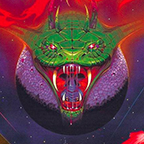
Gradius is one of Konami's earliest successes, and presently, one of its least-utilized series. The 1985 arcade original sprang from Scramble, a 1981 Konami shooter that introduced a free power up system that would ultimately become Gradius' defining element. As you defeat enemies in most Gradius games, you occasionally earn units that move a cursor along the length of the power meter. You have to effectively kill enemies, collect power up units, and survive in order to unlock top-tier upgrades, but you can also stick to the low-tier powerups for immediate gratification. Either way, if you die, your ship is respawned at stock, negating all of your hard work. This mechanic gives players multiple ways to strategize, albeit by favoring speed, firepower, or defensive power-ups.
Over the years, Gradius has landed on nearly every console (with the exception of the original Xbox and Sega systems), but not always as a numbered game in the series. Its early success led to the creation of numerous spin-off games, such as Salamander--which is similar to Gradius, but with an altered power-up system and some vertical-scrolling levels--and Parodius--a game that purposefully mocks Konami games and shooting games at large.
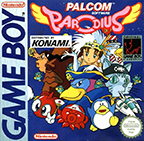
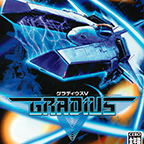
The arcade shooting game market has changed significantly since Gradius arrived, and instead of spaceships and the like, many new games in the genre from publishers like Cave feature young girls in short skirts as avatars for pilots and aircraft. Konami's Otomedius Excellent on the Xbox 360 is the perfect example. A Gradius game in every way except for the setting, characters, and title, it seems to be an attempt on Konami's part to capitalize on Japan's growing and unfortunate trend of over-sexualizing girls in media. This would come three years after Gradius V on PlayStation 2, which was developed by the legendary studio formed by ex-Konami members, Treasure, and is one of the best games in the series.
Thankfully, the last true Gradius game brought things back to the series roots. Gradius Rebirth on Wii delivered a traditional Gradius experience with remixed levels from past games, though it seems to have failed to generate the sales and excitement that could inspire a new game in the series. With the cancellation of Gradius VI (which was announced at the 2005 Tokyo Game Show) for PlayStation 3, Gradius, like many franchises under Konami's watch, has been relegated to art that gets plastered onto pachinko machines in smokey gambling parlors.
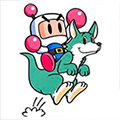
Hudson Soft Games
After years of flirting, Konami finally absorbed Hudson Soft and all of its IPs in 2012, giving it unfettered access to a strong catalog of recognizable characters and franchises. Despite owning series such as Bomberman, Bonk, and Bloody Roar, Konami hasn't utilized them, and by all accounts, there's nothing to indicate it has plans to do so.
Where Does Konami Go From Here?
As Konami continues to consolidate its studios and buckle down on its current cash cows, mobile and pachinko development, and fitness centers, it appears that classic series like Gradius and Castlevania may be relegated to the land of merchandising. While this may sound sad to the many fans who grew up with those series, or otherwise hold them near and dear to their hearts, can you really blame Konami? Regardless of how it got to this point, most of the talent responsible for making these games household names have left the building, and while it could look for new talent to revive those franchises, that may be too risky of an endeavor for executives and investors to swallow.
Somewhat understandably, many people feel betrayed by this turn of events, but the truth is that Konami owes us nothing. We can bemoan the current state of affairs all we want, and we can chastise Konami from withholding the future of these series from the comfort of our social media accounts, but realistically, none of that will sway decision makers who value money over nostalgia.
Games have changed drastically since the dawn of Konami, and while we all want more games like the ones we know and love, they're a product of the past. Instead of lamenting the theoretical future of a series that we can't even predict, go play Silent Hill 2, Metal Gear Solid 3: Snake Eater, or Castlevania: Symphony of the Night, and talk about them with friends. It's the best way to keep the spirit of your favorites games alive.

